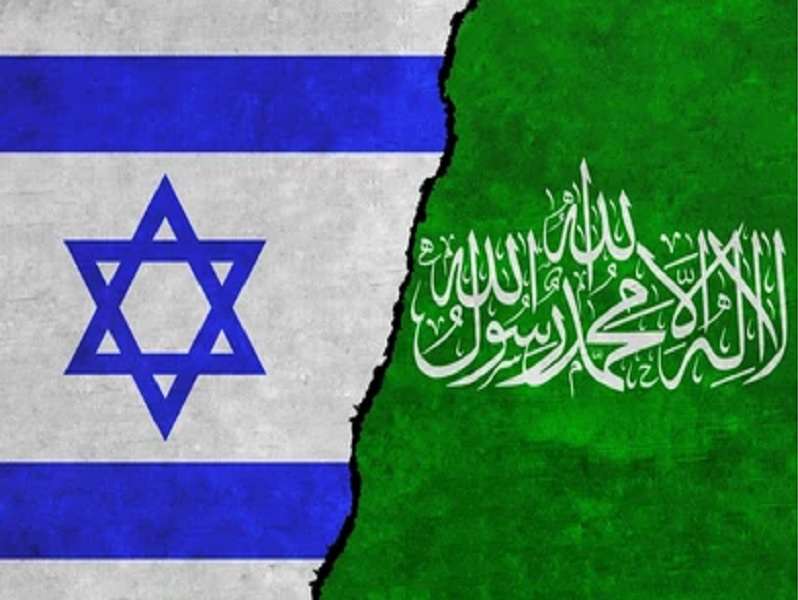The Times Of Israel (TOI) cited a Foreign Ministry source to report on Tuesday that their country is displeased with Russia’s position towards the latest Israeli-Hamas war, which they described as unbalanced due to Moscow not condemning Hamas in its unsuccessful ceasefire proposal at the UNSC. The outlet also claimed that some were deeply offended after President Putin compared Israel’s Gaza blockade to the Nazis’ blockade of Leningrad that killed his older brother before he was born.
These criticisms ignore the official facts about Russia’s stance that are cited in the following analyses:
* “Russia’s Support Of Palestinian Independence Shouldn’t Be Spun As An Anti-Israeli Policy”
* “Russia Has A Balanced Approach Towards The Latest Israeli-Hamas War”
* “It’s Significant That Putin Didn’t Ascribe Blame For The Gaza Hospital Catastrophe”
* “Russia’s Ties With Hamas Are Pragmatic & Shouldn’t Be Spun As Endorsement Of The Group”
* “Russia Isn’t Expected To Stop Israel’s Strikes In Syria”
Russia’s policy of principled neutrality will now be summarized for the reader’s convenience.
The Kremlin officially considers Hamas’ attack in early October to be an act of terrorism, but it doesn’t believe that this discredits the cause of Palestinian independence nor justifies Israel’s disproportionate response, though it strongly supports the self-professed Jewish State’s rights to exist and defend itself. The last-mentioned point explains why it’s let Israel bomb the IRGC and Hezbollah in Syria with impunity hundreds of times since September 2015 despite occasionally condemning this for appearance’s sake.
Russia’s immediate priorities are to relieve civilians’ suffering, ideally through a ceasefire but it would be willing to settle for the creation of humanitarian corridors if this proves impossible, and to prevent the conflict from expanding into an all-out regional war. In the medium term, it wants to break the US’ monopoly over the peace process that’s responsible for perpetuating the cycle of violence till now and then mediate a two-state solution that sustainably ensures both of their legitimate security interests.
These four goals are admittedly ambitious and require a careful balancing act between all parties in order to stand any chance of success, however minimal it might realistically be, thus accounting for Russia’s policy of principled neutrality that’s aligned with its objective national interests in this conflict. It’s therefore unrealistic for Israel and Hamas, their respective US and Iranian patrons, and those two’s supporters to imagine that Russia will abandon its balanced position to back them against their enemy.
That said, both regard the latest war as existential and are thus displeased with Russia’s stance, which is why they’re each resorting to media campaigns aimed at pressuring it to take their side. By sheer coincidence, both concluded that the most effective means is to misportray Russia as biased towards Hamas. Israel and its supporters present this as shameful and hope that it’ll pressure Russia to condemn this group while their enemies present it as positive and hope that it’ll lead to tangible support.
The TOI’s recent report serves as proof of this approach in action from the pro-Israeli side as do former US Ambassador to Russia Michael McFaul’s tweets on this topic here and here, while this top Alt-Media influencer’s tweets here and here demonstrate the same from the pro-Hamas side. The four preceding tweets push their respective party’s narrative agenda through indirect means that will now be explicitly described to make sure that nobody misses their partisan messages.
The first pair suggests that President Putin duped Prime Minister Netanyahu over the years into thinking that he’s “a very close and true friend of the State of Israel” like former Israeli premier Bennett described the Russian leader as being in late 2021 while supposedly supporting Hamas this entire time in secret. The second pair pushes complementary claims by implying that Russia might go to war with the US for Hamas’ sake and claiming that it’s already helping Iran arm that group and others via its Syrian airbase.
These two media campaigns attempt to manipulate their targeted audience’s inaccurate but shared perception that Russia always sides with the West’s opponents in any given conflict. The pro-Israeli effort wants Westerners to condemn Russia on this false pretext so that it turns against Hamas in order to improve its reputation with them, while the pro-Hamas effort wants non-Westerners to praise Russia on this false pretext so that it gives the group real support in order to uphold its reputation with them.
Neither party appreciates Russia’s principled neutrality towards this conflict since they consider the war to be an existential struggle that’ll inevitably result in either Israel’s or Hamas’ destruction, but the Kremlin still thinks that both might survive and that’s why it continues balancing between them. If that scenario comes to pass, which can’t be ruled out due to how difficult it’ll be for each to fully defeat the other, they’ll require a neutral mediator and will then finally appreciate the wisdom of Russia’s position.
